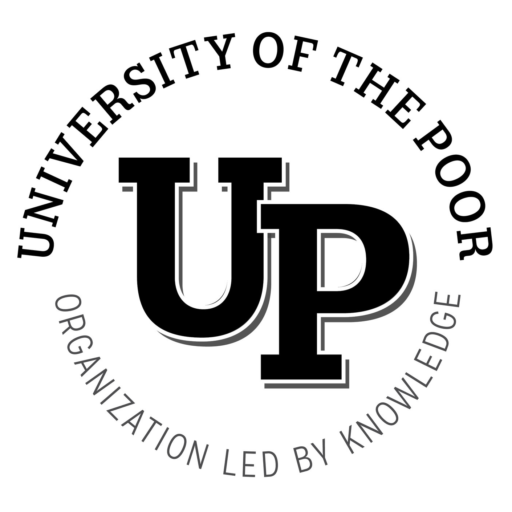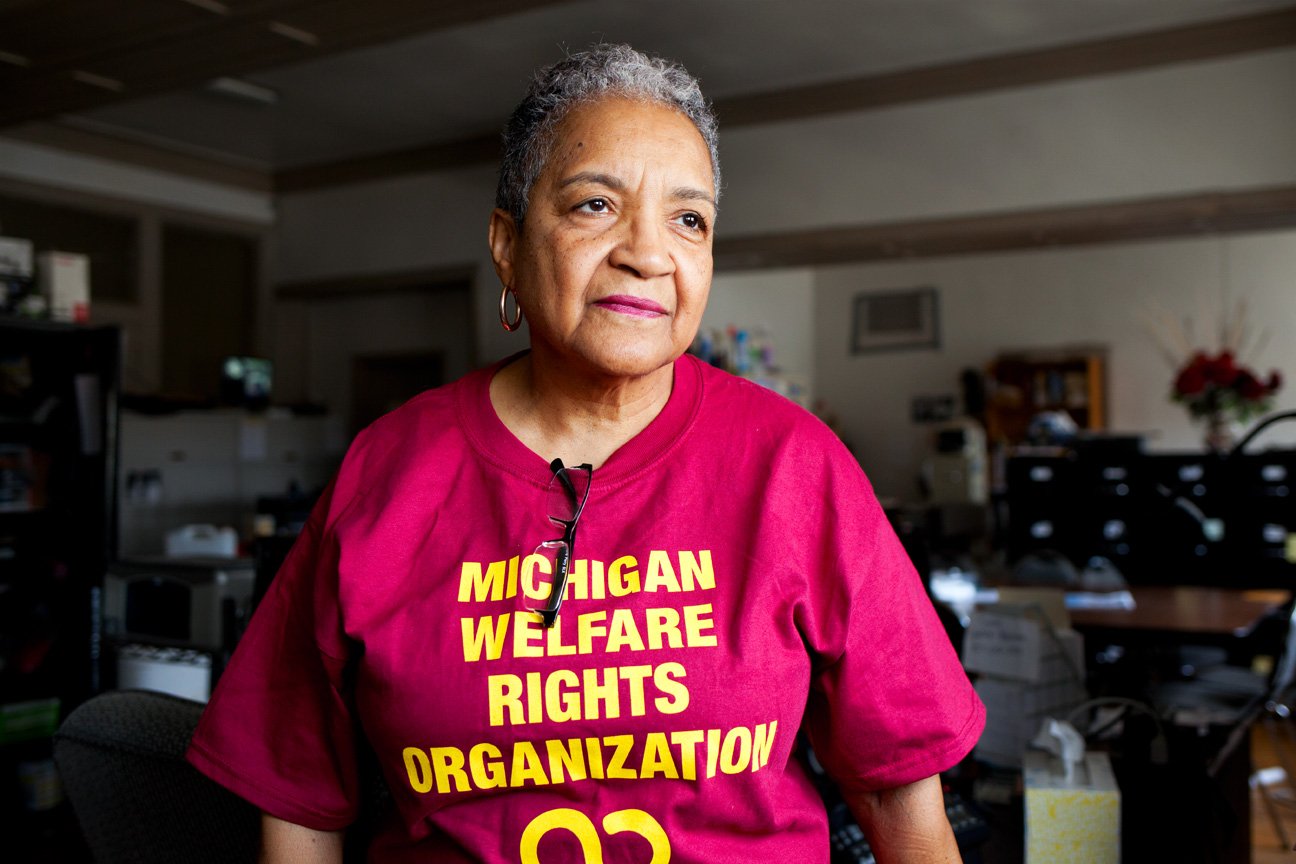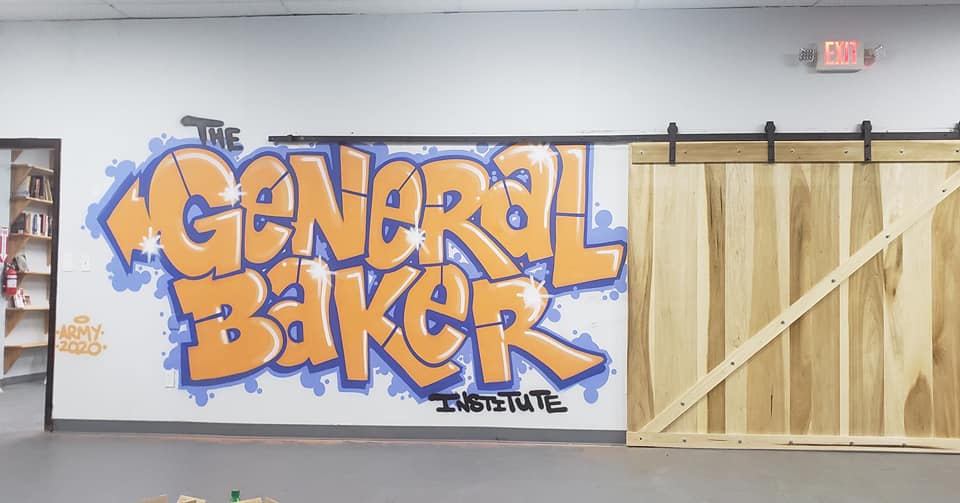Marian Kramer and Willie Baptist sat down to discuss how the National Welfare Rights Union understands “struggle as a school.” Kramer and Baptist have ties to the long history of welfare rights. Kramer was part of the original National Welfare Rights Organization of the 1960s and 1970s and both were part of the founding of the National Welfare Rights Union in 1987. In this interview, they reflect on the tactics and strategy of organizing poor people around welfare rights. They challenge the prevailing and competing ideas about welfare rights strategy that block the poor from effectively organizing as leaders and offer insight as to why those models have failed to respond to the accelerated dismantling of the welfare state in the changing conditions of the cheaper and more powerful micro-electronics and computers.
When the National Welfare Rights Union studies the history of the National Welfare Rights Organization of the previous generation, they are learning from struggle. This is particularly important as technology rapidly erodes the need for workers in a society where one’s survival is based on the ability to find paid employment. Welfare programs like AFDC (then TANF), SSI, SSDI, and SNAP were designed to support and stabilize our economic system for the benefit of the capitalists, not to meet the human rights of all people. The contradiction of an economy which no longer needs workers, but still forces workers to depend on paid labor, makes increasingly necessary the sophistication of the dispossessed class to engage a strategy that effectively battles the owning class for the means of life—water, food, housing, and even our own children.
Key fronts of struggle in the coming period for welfare rights
Marian Kramer: There are several struggles that are the foundation of what we want to get rid of under this capitalist system. One is the snatching of children from parents by the state because the family is poor. You know, other folks end up gleaning funds when these children are snatched. When families have to go to court, money is made off them. If they have a foster care person, money is made there. But the parents are not really cared for and helped like they should be. If the parents were able to get the same amount of money as a foster parent, they could keep their family together. But that would depend on a system that really cared about the wellbeing of the family. A lot of times they snatch these kids for reasons that are lies. They take kids because the Department of Health and Human Services gets funds for themselves. They’re crooks.
What we want to do is get to the folks who are trying to simply get food for their children. These folks are leaders, even if they don’t know it. The people on welfare emerging from these struggles are the same people, in essence, as the folks who have been forced to be homeless. They blame themselves for what’s going on. I used to say, “don’t blame yourself.” Your problem is that you don’t know who the damn enemy is. Without that you aren’t able to have an effective plan to correct what is going on. So, for welfare rights in this period, we’re having to recognize the victims of poverty as leaders and begin to educate them around who the enemy is and why we are in the situation we are in now.
Willie Baptist: Capitalism is at a stage of development where it is having to change the way it controls poor people. In the past, poor controlled people were controlled by expanding the welfare state. Now we’re in a period where the economic crisis is a systemic crisis. The capitalist class has been dismantling the welfare state, so we are seeing problems of water being cut off and kids being taken away from parents and food lines growing. At these food banks, cars line up around the whole neighborhood. The moratorium on evictions that they had as an emergency measure on housing and rent has ended, so you will have more and more people being thrown out into the streets going into the winter.
In welfare rights organizing, we’re talking about tapping into the only power that we have as poor folks, and that’s organizing our numbers. The first step, like Marian said, is identifying leaders who are committed to organize on a massive scale. That’s our only power. You can express your moral outrage, you can fight for this legislation or that legislation, and they might concede it, give it to you, but they can also take it away. In welfare rights, we say we only get what we’re organized to take. Freedom isn’t free. If I give you something, I can take it away. We’ve got to organize, organize, organize.
Kramer: People don’t realize the role that water plays in our existence. It’s a rude awakening when you find out it isn’t coming out of your taps. When we see people in our neighborhood cutting off the water, we need to come together in that neighborhood and make sure that those families don’t go without water. My water bill was like $500 dollars just recently. I was trying to figure out where in the hell I have $500 to pay these fools. When I go into their office to pay my bill, I stay a while and talk to the other people coming in. I tell them that if they treat you wrong in there you know how to get in touch with us at the Michigan Welfare Rights Union.
This is happening throughout the country. Now, at first, we knew Detroit was experiencing high water bills and water shutoffs. And then across Michigan. But now we know it’s all over the place, from Mississippi to New Orleans to West Virginia. So that’s one of the biggest fights that all of us have to become a part of. The fight to privatize your water is coming to your neighborhood.
Baptist: Martin Luther King Jr. raised the question of why we have to pay for water when there’s so much water in the world. Why is water sold for profits? We live in a capitalist system that concentrates wealth into fewer and fewer hands and puts other people into human misery and poverty. They’re taking away our water on top of that. Why? Because they want to own the water so they can make a profit.
When we talk about welfare rights, we’re talking about the right to water. Why should a few people own the water to make big time money, while other people’s water is being cut off? And then, when their water is cut off, their kids are taken away from them.
When we talk about welfare rights, we’re also talking about the right to housing. We can produce a prefab house in 45 minutes with these 3D-printing machines. And yet, we have people who are homeless in the richest country in the world. Why? Because the housing industry is organized around profit. The same for our food system. They’re throwing away more food than it would take to feed everyone in this country, while people are going hungry!
These are basic necessities and should be non-negotiable. We have the right to life, liberty, and the pursuit of happiness. You don’t have life if you don’t have food, water, or housing. The same is true of health care. But the banks are using that industry to make big time money, even during this COVID crisis. Meanwhile, we’re dying.
Making struggles a school
Kramer: People have been told that their elected leaders will take care of them. But when these folks get in office, they mostly take care of themselves. “To hell with the class, you know. They’ve got more than they can handle with our class out here, especially when we get mad. Our class will move. A lot of people think we won’t move. We will.
Baptist: People are not going to sit back and let their families starve. One of the things the ruling class is afraid of is that they know that the poor are a giant. But we’re a sleeping giant, and they want to keep us asleep. Organizing means waking our people up and helping them come to understand our own size and power as a class. We’re blocked from that when we are divided by race and forced to compete with each other – to see each other as the enemy, instead of understanding who the real enemy is. As long as we’re divided, we will stay asleep and they can do whatever they want. This is why organizing across race lines has always been part of welfare rights.
So, the thing is that on all these fronts of struggle we have to translate our efforts to survive into an organizing drive, and turn everything we do into organization. Because otherwise just making demands and being angry is like whistling in a hurricane. Nothing will change by us yelling, “you’re wrong, that’s so bad.” They don’t give two shits about how wrong they are. But they do care if we put a boot up their ass with some organization. I guarantee that if the poor of this country start moving as an organized force, they will have to respond. History says that.
Building the struggle for national welfare rights is a contribution to the organization of the poor. Like Malcolm X said, power can only take a step back in the face of more power. If we don’t have power and we don’t have teeth, and if we don’t have teeth we’re just talking trash. Getting poor folks organized around welfare rights is about putting teeth behind our moral outrage. We have to turn our anger into an organized force.
Competing ideas in the history of welfare rights
Baptist: We had three major influences on the old National Welfare Rights Organization in the 1960s. One was Saul Alinsky. He said you had to organize, but only for concessions like a new stop light or to get your water turned on for a day. Another influence was Richard Cloward and Francis Fox Piven. They said don’t even organize as the poor, just disrupt. Let other people lead you while you disrupt. They said it was a waste of time for poor people to organize.
And then there was an organizing tradition that goes back to Johnnie Tillmon. She was from the ranks of the poor out of Watts, California and the first chair of the National Welfare Rights Union. And she was talking about how poor folks need to take their destiny into their own hands. They need to organize themselves. They need to be in the leadership of organizations and a movement. This is what we’re building on when we talk about the Tillmon model of organizing.
We’re talking about a section of the population that is the most disunited, disorganized, and racially segregated in society. And that’s no accident. They do that to keep us fighting with other poor people in this country and with poor people in other countries. Our power is in our ability to come together to change this situation. So, they send us all kinds of poverty pimps and preachers to keep us from organizing. Our organizing drive, using the Tillmon model of organizing, counters that. We’ve had to fight the other influences throughout the history of welfare rights. We’ve had to fight the narrow community organizing of Alinskyism. And we’ve had to fight the Clowards and Pivens who say the poor can’t organize. We have to go with Johnnie Tillmon, who said the poor can and must organize for transformative change.
Kramer: Well, it was Beulah Sanders, Annie Smart, Annie Chambers, and others, as well as Johnnie Tillmon. All of these key leaders need to be recognized. These women were raising their own children while they were organizing. They were fighting for a different kind of society than the one they were forced to live in. We’ve got to take what this history has left us and understand concretely that if anyone is going to be in the forefront and be running the organization, it’s got to be the people at the bottom. We have to not only stay with them, but get together and plan with them and make sure they understand that they are not only soldiers, but leaders in this process.
In the Tillmon model, it’s not winning benefits just for this or that person. We might get a little social security to be able to pay for all the bills they sent you, and you might have a little left. But we want a society where we can enjoy life. We want that for all. But that’s not going to come from these nuts in D.C. talking about how we’ve put too much money in poor communities. They don’t give a damn about us. Poor people, we always have a tendency to beat ourselves down and say we can’t do things. But we know how to put a menu together, to take care of our families and all the children in the neighborhood. We don’t have the money that the rich folks have to do these things for them. The Tillmon model uses these as leadership skills to help the poor organize around the demand that everybody should have what they need.
To do that effectively we also have to understand who the enemy is. It’s not that person down the street. The enemies are these nuts sitting on Wall Street. They are the enemy. They’re the ones that can get on jets and go out of the world as an astronaut. This is a toy for them. Although they turn around and say the money is going to the children’s hospital or whatever. But that money should have been at the hospital. Their families should have decent health care. Why should we have to live from the time of birth to the time that we leave the earth being hungry, wondering if our children are going to make it. This country doesn’t belong to the capitalists. It was built on land stolen from the indigenous people. It was built on the backs of our fathers and mothers and grandparents.
I know how it is out here. Sometimes people in these organizations go around saying, “I don’t trust this one or that one.” But then they turn around and trust the capitalists. More and more people are beginning to realize what we’re talking about. It is time for us to come together and disregard any type of problems we might have with someone. We don’t have time for that. We must be able to come together and decide what we’re going to do in order to have a new society.
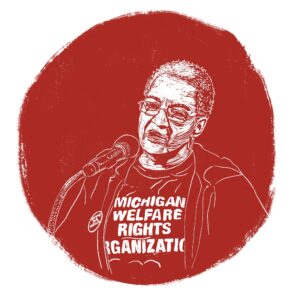
Marian Kramer has been in the front lines of the welfare rights and civil rights movement from its origin in the 1960s. She is Co-chair of the National Welfare Rights Union (NWRU) an organization of, by, and for the poor in America. She is a leader in the Michigan Welfare Rights Organization and the struggle to turn water back on for thousands of low-income Detroit families who have had their shut off for non-payment. For decades she has fought government programs such as “workfare”; defended poor women against unjust prosecution for “welfare fraud”; and led electoral campaigns to elect the victims of poverty to political office. She has helped organize “summit meetings” of grass-roots leaders of poor people’s movements, housing takeovers by people without homes, and efforts to unionize in the South. Today, she retains her commitment to end poverty in America by empowering the poor, and especially women, as the leaders.
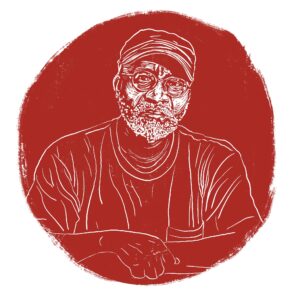
Willie Baptist is a formerly homeless father of three who came out of the Watts uprisings and the Black Student Movement. He has 50 years of experience educating and organizing amongst the poor and dispossessed including working as a lead organizer with the United Steelworkers, as an educator and organizer with the National Union of the Homeless and its educational arm, the Annie Smart Leadership Development Institute, as the Education Director of the Kensington Welfare Rights Union for 10 years, and as a lead organizer and educator for the Poor People’s Economic Human Rights Campaign, as well as many other networks.
He is a Board member of the National Welfare Rights Union, the United Workers of Maryland, Picture the Homeless in New York and on the Advisory Committee for the Wildfire Project. Willie is the author of numerous books, articles, and pamphlets including Pedagogy of the Poor, A New and Unsettling Force: Re-Igniting Rev. Dr. Martin Luther King’s Poor People’s Campaign, It’s Not Enough to Be Angry, and “Lessons from the Poor Organizing the Poor: 5 Main Ingredients and the 6 Panther P’s.” Willie presently serves as the Poverty Initiative Scholar-in-Residence and Co-Coordinator of Poverty Scholarship and Leadership Development for the Kairos Center.
Photo: Garret MacLean
